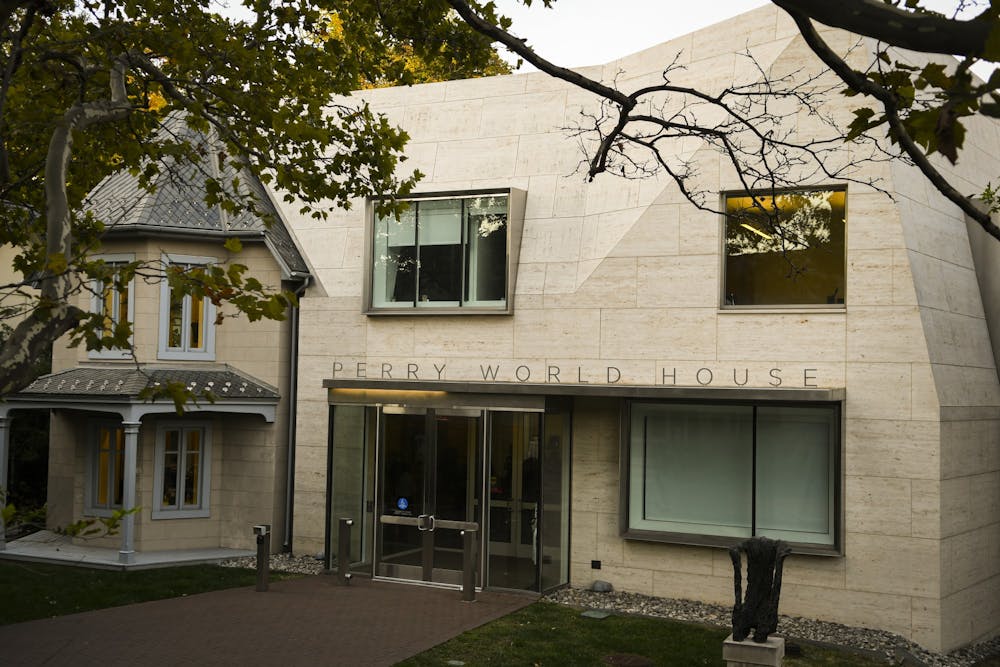
Perry World House will hold a talk on Tuesday about nuclear technology and the debate surrounding its uses in science, diplomacy, and defense.
The hour-long talk will feature a discussion between M. Susan Lindee, Professor of the History and Sociology of Science, and Lynn Meskell, Professor of Anthropology and Historic Preservation. It will be moderated by Thomas Shattuck from the Perry World House. The hybrid talk will start at 4 p.m. on Zoom or in person at the Perry World House.
The Daily Pennsylvanian spoke with Lindee and Meskell prior to their talk about nuclear technology.
A key focus of the talk will be understanding how the current nuclear weapon situation in the world has evolved. For many, the threat of nuclear weapons might seem normal. However, according to Lindee, this is not “life as usual.”
“It is the invention of a given time and the result of a technological system that has had devastating consequences which will never disappear for humans,” Lindee said.
Sean Bray, a sophomore in the College studying international relations, agrees and thinks that nuclear weapons are one of the fundamental issues that the world needs to reconcile with.
“They're universally important, they define the nature of every relationship between every state. They have completely changed the way we think about war,” he said.
For Meskell, part of this understanding involves examining the history of the disciplines of both anthropology and archeology, to see how they were influenced by nuclear developments.
“It is not just policy and political science, but there are also other fields that are implicated in the history [of nuclear development],” Meskell said. “I want to look back and see these unacknowledged legacies.”
Another one of the focuses of the talk will be the link between science and military technology, and how the latter drives the pursuit of the former.
Lindee said that military and defense technology affects almost all sciences. The Department of Defense, she explained, is the “most important potential funder” in the life of a scientist. What the Department of Defense wants shapes what scientists choose to research, she said.
“We know how to destroy the world in a heartbeat but we don't know how to save it,” Lindee said.
Lindee said that she wants the audience to leave the talk with a better understanding of the role defense plays in shaping science.
“Every kind of technology you've ever used probably has some military dimension,” she said.
Meskell agreed, adding that “Even fields that seem quite removed like archaeology have benefited from developments around the atomic bomb.”
This will be another focus of the talk — how those seemingly far-removed fields like anthropology and archeology benefited from new techniques and processes associated with nuclear development.
“Archaeology was and still is very directly involved with military technology, whether it was Carbon-14 dating, rubidium, cesium magnetometers, underwater submarines, or U2 spy planes," Meskell said. "We really have had a very close relationship with military technology."
Meskell added that she believes it is time for disciples that benefited from nuclear technology to understand their histories and scrutinize the ethics of their past.
“I would like people to walk away [from the talk] thinking why in the world has so much science been dedicated to state power, and how can we support science that is not focused on producing human injury,” Lindee said.
Nuclear weapons are something we cannot ignore, even if we do not have interests in international issues, Bray said.
“The United States at one point had 30,000 nuclear weapons when it was possible to destroy the whole world with about seven," Lindee said. "So, why do you have 30,000?”
The Daily Pennsylvanian is an independent, student-run newspaper. Please consider making a donation to support the coverage that shapes the University. Your generosity ensures a future of strong journalism at Penn.
Donate






